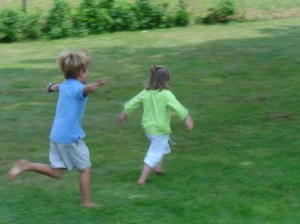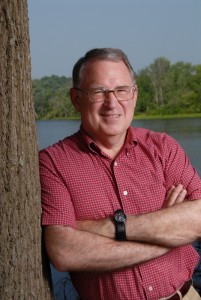Everyone who has ever attended school has memories of one or more teachers who really made a difference in your life. Maybe he or she sparked your creativity, helped you over a difficult academic hurtle, forced you to question your assumptions, or took an interest and let you know that you and your success mattered.
 Every year, NC State University gives our students an opportunity to honor teachers who have made a difference in student’s lives with the “Thank A Teacher” program.
Every year, NC State University gives our students an opportunity to honor teachers who have made a difference in student’s lives with the “Thank A Teacher” program.
The College of Natural Resources is excited that students have honored 14 of our faculty this year. Our students expressed appreciation for – “Unwavering loyalty to students, Professionalism, Going beyond the call to ensure that students are successful, Making a difficult course as fun as possible, A good attitude, approachability and fairness, Enthusiasm and dedication, Taking the time as an advisor to get to know what I’m looking for in terms of college goals and post-graduation activities, Keeping me motivated, Making learning easy and fulfilling, Ready response to all our questions and emails,” and more. One student wrapped up his comments with, “Thanks a million for everything that it is you do, keep giving, it makes a difference.”
Our congratulations to:
Gary Blank, Forestry & Environmental Resources
Kim Bush, Parks, Recreation & Tourism Management
Heather Cheshire, Forestry & Environmental Resources
Chris Deperno, Forestry & Environmental Resources
Thomas Easley, Dean’s Office/Community for Diversity
Ryan Emanuel, Forestry & Environmental Resources
Richard Lemaster, Forest Biomaterials
Terrie Litzenberger, Forestry & Environmental Resources
Melissa Mchale, Forestry & Environmental Resources
Annette Moore, Parks, Recreation & Tourism Management
Janell Moretz, Parks, Recreation & Tourism Management
Stacy A.C. Nelson, Forestry & Environmental Resources
Larry Nielsen, Forestry & Environmental Resources
David Tilotta, Forest Biomaterials
“We are proud of our tradition of teaching excellence and the welcoming and supportive environment engendered by the faculty and staff of our college. On behalf of our whole faculty, staff, students and alumni, I thank these teachers for their excellent effort.”
– Dean Bob Brown
“Thank A Teacher” recipients receive a letter of congratulations from the University Provost which includes one or more quote from student letters of appreciation, and recognition at the Office of Faculty Development’s Teaching and Learning Symposium during Spring Semester.
Learn more about NC State’s commitment to teaching excellence at the Office of Faculty Development website.
Learn more about the College of Natural Resources at NC State University





